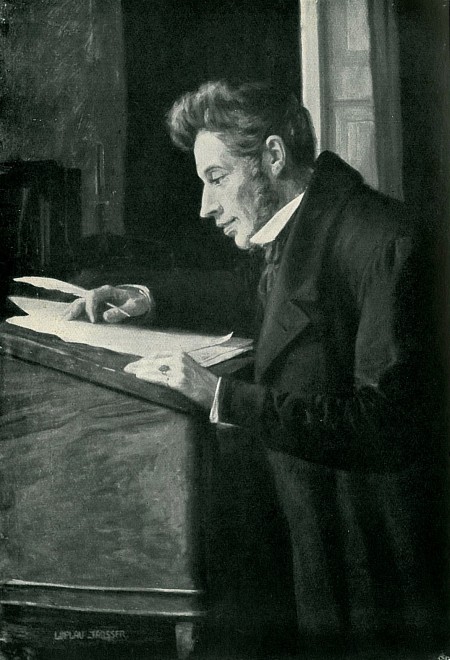“Though he very rarely characterized himself as a philosopher, that is how world history remembers Søren Aabye Kierkegaard. And yet, while Socrates was his sage and he profoundly respected Kant, Kierkegaard ultimately became a virulent critic of philosophy, especially of the academic ilk. G.W.F Hegel was the regnant philosopher king of early to mid-nineteenth-century European philosophy. While Kierkegaard, in his early career, admired the speculative German thinker, he ultimately concluded that Hegel and other intellectual system builders “are like a man who has built a vast palace while he himself lives next door.” Writing in his journal, Kierkegaard insists, “Spiritually, a man’s thoughts must be the building in which he lives–otherwise it is wrong.” (JN, vol. 2, Journal JJ: 490, p.279). In addition to being unable to bring their scholarly studies to quotidian life, Kierkegaard complained that philosophers neglected the question of how to communicate the wisdom that philosophers (lovers of wisdom) are supposed to care about and ultimately possess.
Plato wrestled with the question of whether or not the written word was an aid or impediment to the good and just life, but for the most part the focus in philosophy has always been on the what, on the content of thought, as though wisdom in life were a mere matter of information capable of being directly disseminated en masse. With their emphasis on reason, Hegel and other virtuosi of abstractions spent little time pondering how it would be best to communicate their conclusions. Indeed, philosophers can seem almost narcissistic in their indifference to the subjective coordinates of their readers. They reason through an issue such as “What is love?” and then publish the argument, usually in a treatise form accessible only to the likes of philosophy professors.
Unlike other members of the Socrates guild, Kierkegaard grappled with the question of the how, as opposed to the what, of communication. Someone with an epistemological interest might conclude that while most philosophers probe the question of knowledge, Kierkegaard made a study of belief; Kierkegaard, however, was concerned with more that nodding intellectual assent.”
– From the Introduction to “The Quotable Kierkegaard”, edited by Gordon Marino
_________
As a college student studying theology, philosophy, and aesthetics, I quickly grew to distrust the tendency of intellectual academia to ponder all heady subject matter and comfortably sink into complacency in personal action and advocacy. At the same time I realized that the men whose lives I admired were founded on simple and consistent action rather than deep contemplation. Reality tells us that all men are invariably hypocrites at some point, but it has proven more life-giving to experience life with open men of conviction and action than to admire the thoughts and art of self-assured and selfish men.
I was first surprised by Kierkegaard when I started reading “Fear And Trembling.” I was completely caught off guard both by the creative style and intimate content of the work. The self-exposure required to open your own existential questions surrounding a Biblical narrative is starkly different from a treatise expounding on how neatly you’ve completed your understanding of the concepts involved.
While I cannot attest for the personal lives of authors and thinkers like Kierkegaard, C.S. Lewis, Mark Twain, G.K. Chesterton and Albert Camus, their candor, down-to-earthness, and even comic qualities show a confidence to be themselves and a capability to attack heady subjects without looking down on the laymen.
I look forward to writing a future post including a selection of potent quotes from The Quotable Kierkegaard.
_________
Further Reading

Great post! I absolutely love Kierkegaard. I have read almost all of his pseudonymous works as well as his up-building discourses. I did that a few years ago and it was such a rewarding experience. I highly recommend it! Kierkegaard is one of the most misunderstood philosophers. Philosophers often incorrectly assume that he agrees with everything in his pseudonymous works. His pseudonymous authors are fictional characters he has created. Therefore, Kierkegaard doesn’t always agree with his pseudonym’s opinions. Fear and Trembling and The Sickness Unto Death are my favorite pseudonymous works. Works of Love is my favorite up-building discourse. There is almost nothing in the world that I like discussing more than Kierkegaard’s writing. I too am drawn to Kierkegaard’s emphasis on action.
LikeLike
Thanks! I’m always eager to learn more about the man and his thoughts! Thanks for the valuable insights!
LikeLike